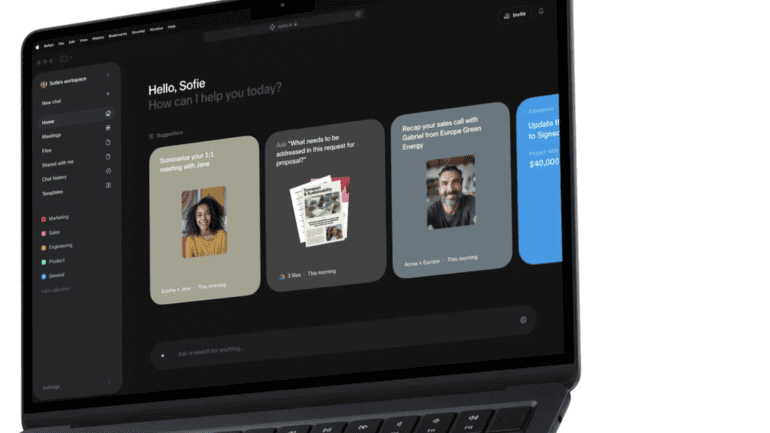- Sana, a B2B SaaS company, now offers its chatbot Sana AI for free after a year of development.
- Sana AI automates workflow processes in recruitment, training, admin, and content generation.
- The new Generative AI-driven ‘AI assistant’ simplifies information retrieval without coding.
- R-4 algorithm combines intent analysis, retrieval-augmented generation, and agent actions for enhanced comprehension.
- Significant anticipation surrounds the launch due to the strong demand witnessed for Sana AI Enterprise.
- Sana’s approach emphasizes hyper-customization, allowing users to select from various language models.
- Founder and CEO Joel Hellermark emphasizes the company’s commitment to augmenting human intelligence through AI.
Main AI News:
In a strategic move, B2B SaaS company Sana has unveiled its chatbot Sana AI for free, marking a significant shift from its previous paid model. After a year of meticulous development, Sana now offers its revolutionary AI assistant to streamline workflow processes across various domains such as recruitment, training, administration, and content generation.
The newly launched Generative AI-driven ‘AI assistant’ empowers employees to effortlessly navigate through their organization’s knowledge repository, including historical meeting data, without the necessity for coding expertise. This move aims to enhance operational efficiency and productivity by simplifying information retrieval tasks.
The cornerstone of Sana’s AI capabilities lies in its proprietary data retrieval algorithm, R-4, which has been in the making since 2020. By amalgamating intent analysis, retrieval-augmented generation (RAG), and agent actions, R-4 facilitates the seamless execution of intricate knowledge workflows spanning meetings, files, and documents. Sana asserts that this cutting-edge algorithm endows its assistant with a heightened level of ‘comprehension’ of recorded verbal content, thereby revolutionizing the user experience.
The launch of the free AI assistant has generated significant anticipation, with a lengthy waiting list underscoring the strong demand witnessed during the preceding year for Sana’s paid tier, Sana AI Enterprise.
Headquartered in Rotterdam, with its origins traced back to Stockholm in 2016, Sana’s Principal Engineer, Viktor Qvarfordt, envisions the future of AI as being rooted in hyper-customization. By offering users of Sana AI Enterprise the flexibility to select from an extensive array of language models, including those developed by OpenAI, Anthropic, Google, and Mistral, Sana is poised to redefine the landscape of AI integration.
Qvarfordt emphasizes, “Not all language models are created equal; their distinct strengths and weaknesses render them better suited to specific tasks. Sana AI strategically chooses the most suitable model based on the query, while also affording Enterprise users the liberty to express their preferences. This approach ensures access to the benefits of specialized models without incurring the costs associated with switching or adaptation.”
Joel Hellermark, Founder and CEO of Sana, underscores the company’s commitment to leveraging artificial intelligence to augment human intelligence and propel global progress. He remarks, “At Sana, we firmly believe that democratizing access to AI represents a pivotal step towards realizing our long-term vision. By making Sana AI available to all users starting today, we mark a significant milestone in our journey.”
Conclusion:
Sana’s decision to offer its AI assistant for free marks a significant milestone in the market, signifying a shift towards democratizing access to advanced AI technologies. This move not only enhances operational efficiency for businesses but also underscores the growing importance of hyper-customization and user-centric AI solutions in the competitive landscape. As more companies embrace AI-driven innovations, Sana’s approach sets a precedent for fostering collaboration between human intelligence and artificial intelligence to drive global progress.

